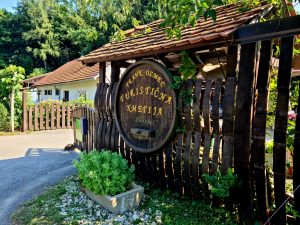Driving to my hotel from the airport in Malta last week, I fell into conversation with the taxi driver. He spoke English, the language of business in Malta. But like many others on the island, it was a second language for him, and a poor relation to his mother tongue, Maltese. I asked him what was new in the country, politically. Malta has a new Prime Minister, Joseph Muscat, a man who shares the same birthday as my taxi driver’s daughter. Both have just turned 40. To have such a young PM bodes well for a country methinks – particularly in the aftermath of my recent visit to Italy which boasts a gerontocracy with an average age of 64 and, from what I saw and heard while I was there, is the bane of young progressives who have little room to make their mark.
Muscat is apparently turning Malta on its head. Young. Energetic. Focused. According to my taxi driver, he’s come up with a brilliant new idea ‘to sell 1800 citizens’ and make in excess of €1 billion in the process, money that would then be invested in ensuring that there are no more poor in the country. A laudable ambition by any measure. I was highly amused on two counts: the idea of selling off citizens (as opposed to citizenship) and the idea that this was Muscat’s brainchild. In this taxi at least, he was getting full credit for the idea.
Austria and Cyprus already offer investor immigration programmes that offer immediate citizenship. Malta joins this group with a lower minimum investment requirement of €1.5 million (compared to €3 million and €2.5 million for Austria and Cyprus, respectively). Belgium, Portugal, Spain, Greece, and Hungary all offer residence programmes that give access to Schengen countries with a minimum investment ranging from €250,000 to €500, 000 (Hungary is at €300 000). Ireland and the UK have similar programmes although both are outside the Schengen area. In the rest of the world, Singapore, Canada, and the USA have variations on the same theme. It seems that money can buy just about anything these days – including citizenship and the right to live and work in another country.
Since it introduced the residence bond programme in December 2012, Hungary has reportedly sold 430 of them to non-EU nationals who want to reside/work in an EU country. My understanding is that a residence permit will allow someone to work in Hungary and travel freely within the Schengen zone but, unlike citizenship, it will not entitle the holder to work in another EU country … just in Hungary.
Given all the deals that are out there, Hungary seems to be the best bang for your buck. Of the initial €300 000 required, €250 000 is refunded after five years but the residency granted is for life. Divide that cost between a family of, say, five (three minors), and it comes at a price tag of €170 per person per month for five years. A good deal, no?
So why isn’t there a longer queue?
First published in the Budapest Times 7 February 2014
Share this:
- Click to share on X (Opens in new window) X
- Click to share on Facebook (Opens in new window) Facebook
- Click to share on Pinterest (Opens in new window) Pinterest
- Click to share on LinkedIn (Opens in new window) LinkedIn
- Click to share on Reddit (Opens in new window) Reddit
- Click to share on WhatsApp (Opens in new window) WhatsApp
- Click to share on Pocket (Opens in new window) Pocket
- Click to share on Telegram (Opens in new window) Telegram
- Click to email a link to a friend (Opens in new window) Email







